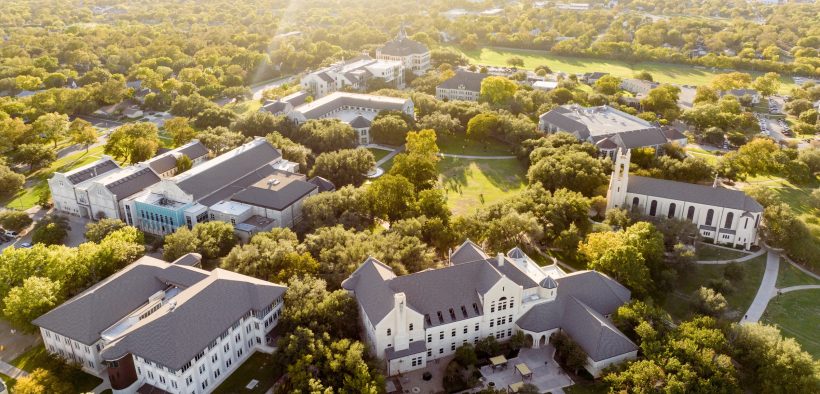Who are the Board of Trustees?
Share

College boards are among the most powerful overseers of a university despite their near-low profile. Their purpose statement is easily found on the Southwestern website along with the list of members. The Board of Trustees “has ultimate responsibility for the University’s mission, operation, and affairs,” according to the University’s by-laws.
But what does this responsibility look like on a concrete level?
The Megaphone reached out to VP of Communications Dinah Ritchie. She explained the specific board member selection process and broke down how board decisions are made.
Board Selection Process.
The board presently consists of 39 unpaid members and can retain a maximum of 45 members. These members serve three-year terms and can only serve for a maximum of four consecutive terms–12 years. Aside from the recent graduate alumni, every July a new member is appointed to serve a three-year term.
Despite being a Methodist-affiliated school, the board is limited to a maximum of 18 members serving on the board from the Methodist Conference.
“These trustees are nominated by current trustees, but elected by their respective United Methodist Church conferences,” relays Ritchie. “There can also be up to 2 Episcopal Trustees. These trustees are two bishops of the United Methodist Church nominated and elected by the bishops of the University’s patronizing conferences after consultation regarding each individual nominee with the board’s trusteeship committee.”
Requirements.
Board members are hand-selected by a trustee committee. Although many of the Board members are alumni, previous Southwestern attendance is not required. A specified donation amount is not required to become a board member either. “We invite our board members to support Southwestern University with financial contributions that align with their individual means,” Ritchie says. “These trustees are typically selected for their overall commitment to the organization’s mission, broad perspective, and ability to contribute to the board’s decision-making process.”
“New board members are identified by a current trustee and sent for consideration to the Trusteeship Committee,” Ritchie explains. “If the nominee passes the Trusteeship Committee, their name will be put forth to the full board for a vote (they need a majority of votes to pass).””
The board has two ‘Recent Graduate’ trustees. “They are elected by the senior class and serve a one to two-year term,” she states. Ritchie comments on the importance of their role in decision-making. “They were just here, so they know the pulse of the university.”
Nominations for the recent graduate Trustee are currently open. “The nomination period will close on April 3,” says Ritchie. “Following this, interviews with the candidates will be conducted on April 8–9. The pool of candidates will then be narrowed down to a maximum of three finalists. These finalists will then be presented to the senior class for voting, which will take place from April 15–17. The winner will be announced no later than April 19.”
Board Committees.
The Board of Trustees functions in committees. “Board committees include fiscal affairs, spiritual life, university relations, academic affairs, facilities planning, and student affairs,” Ritchie explains. Most members serve on multiple committees.
Rather than ruling with an iron fist, the board committees are a guiding voice to Southwestern staff.
Decisions are approved based on their level of significance. “Most times, the Board gives guidance and direction to staff plans and ideas.” Gavel-like rulings typically only happen with “certain things that rise to a specific level.”
The board of trustees meets on campus three times a year–February, April, and October. Other interactions take place on Zoom.
Presidential Oversight.
When asked about the specifics of the Board’s oversight, Ritchie reiterated the University’s by-laws, which can be found on the website: “the board of trustees has ultimate responsibility for the University’s mission, operation, and affairs.”
So does the Board of Trustees function like the US Presidential Cabinet? Or can a university president make unchecked decisions? “A president technically could override the Board, however, they report to the Board on their decisions,” explains Ritchie.
Although the Board oversees major decisions, “the day-to-day governance of the University is committed to the president,” Ritchie explains.
“[Presidents] are responsible for implementing the policies adopted by the board of trustees, for overseeing every phase of the University’s operations, and for formulating and enforcing all rules and regulations,” Ritchie says. Our senior staff, comprising six vice presidents and a chief of staff, are responsible for overseeing the various departments and offices within the University. We are currently in the process of expanding our senior staff team and are searching for a seventh vice president to fill the new role of Vice President of Equity, Accountability, and Inclusive Excellence.”
The Board of Trustees does have a lot of responsibility influencing the direction of the university. However, it’s important to distinguish that while they make high-level decisions and guide the overall trajectory of the University, they do not directly control the day-to-day affairs and academic content.
Students, remember you have a voice in who joins the Board. If you are a graduating senior, make sure to fill out the application form by April 3. Seniors, get ready to vote on your classmates April 15-17.
